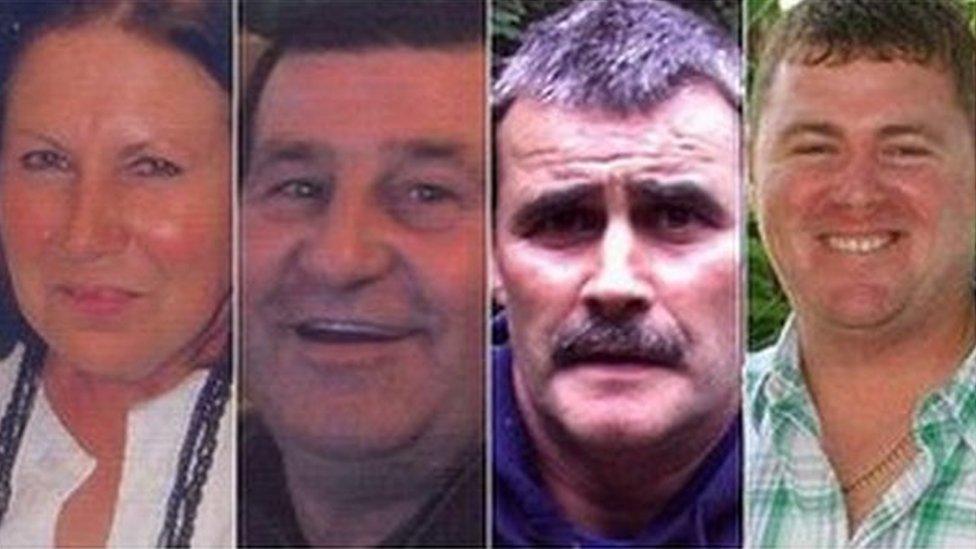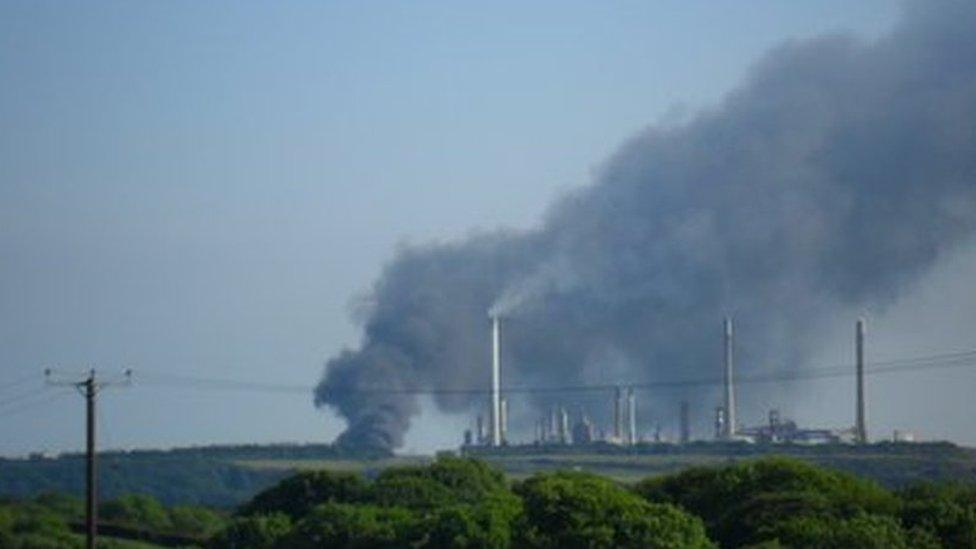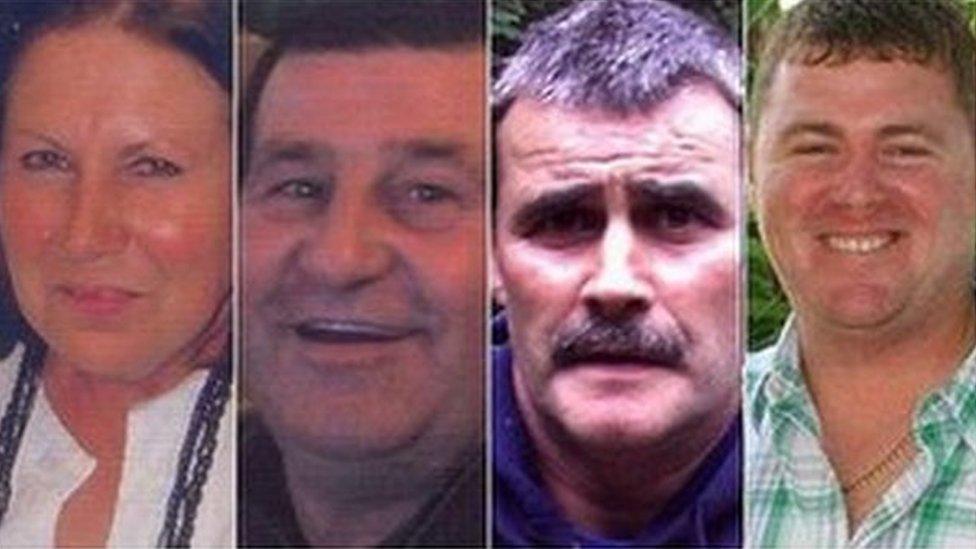Chevron apologises for Pembroke oil refinery deaths
- Published

Julie Jones, Dennis Riley, Robert Broome and Andrew Jenkins died when a storage tank exploded
Oil company Chevron has apologised to the families of workers who died in an explosion in 2011.
Dennis Riley, 52, Robert Broome, 48, Andrew Jenkins, 33, and Julie Jones, 54, were trying to empty a tank when it exploded at Pembroke oil refinery in June 2011.
Valero Energy UK Ltd and B&A Contracts admitted health and safety charges in October.
The firms are being sentenced at Swansea Crown Court.
A fifth employee, Andrew Phillips, was left with "terrible" life-changing injuries, the court heard.
The oil refinery was owned by Chevron at the time of the explosion, but Valero was named in court proceedings because it bought the site afterwards.

The tank exploded at the refinery in June 2011
Mark Ellison QC, defending Valero, said US oil giant Chevron "deliberately remained closely involved" with events since the explosion.
Addressing the families of the victims in court, he said he had been instructed to offer "Chevron's deep regret and sincere apology" for the "dreadful loss and serious injury".
A statement from the refinery's managing director at the time, Greg Hanggi, said: "The company's admitted failures let down all those individuals and their families."
Mr Ellison said the company accepted a number of "systemic failures" at the site led to the blast.
The five workers who were caught in the explosion had all been employed by outside contractors working at the site.
They had been instructed to pump residue out of a tank which normally contained a mixture of amine and diesel, but was going through a cleaning process.
Dangers 'poorly understood'
The court heard the atmosphere inside it had been slowly "contaminated" with flammable "light hydrocarbons" as a result of changes to the refining process there many years previously.
While the company had been "aware" of the potentially dangerous build-up when it changed its process in 1998, it failed to put in place measures to address the problem, Mr Ellison said.
The court also heard the tank had been wrongly classified as a safe environment, while messages and tests that could have potentially prevented the disaster were lost in communication during the build-up to the explosion.
Mr Ellison said there had been a "poor understanding" of the dangers among some staff at the Chevron site.
He also described how one gas test, indicating high levels of explosive gases inside the tank, failed to be acted upon.
The case continues, with Valero and specialist cleaning company B&A contracts expected to be fined on Friday.
- Published30 April 2019
